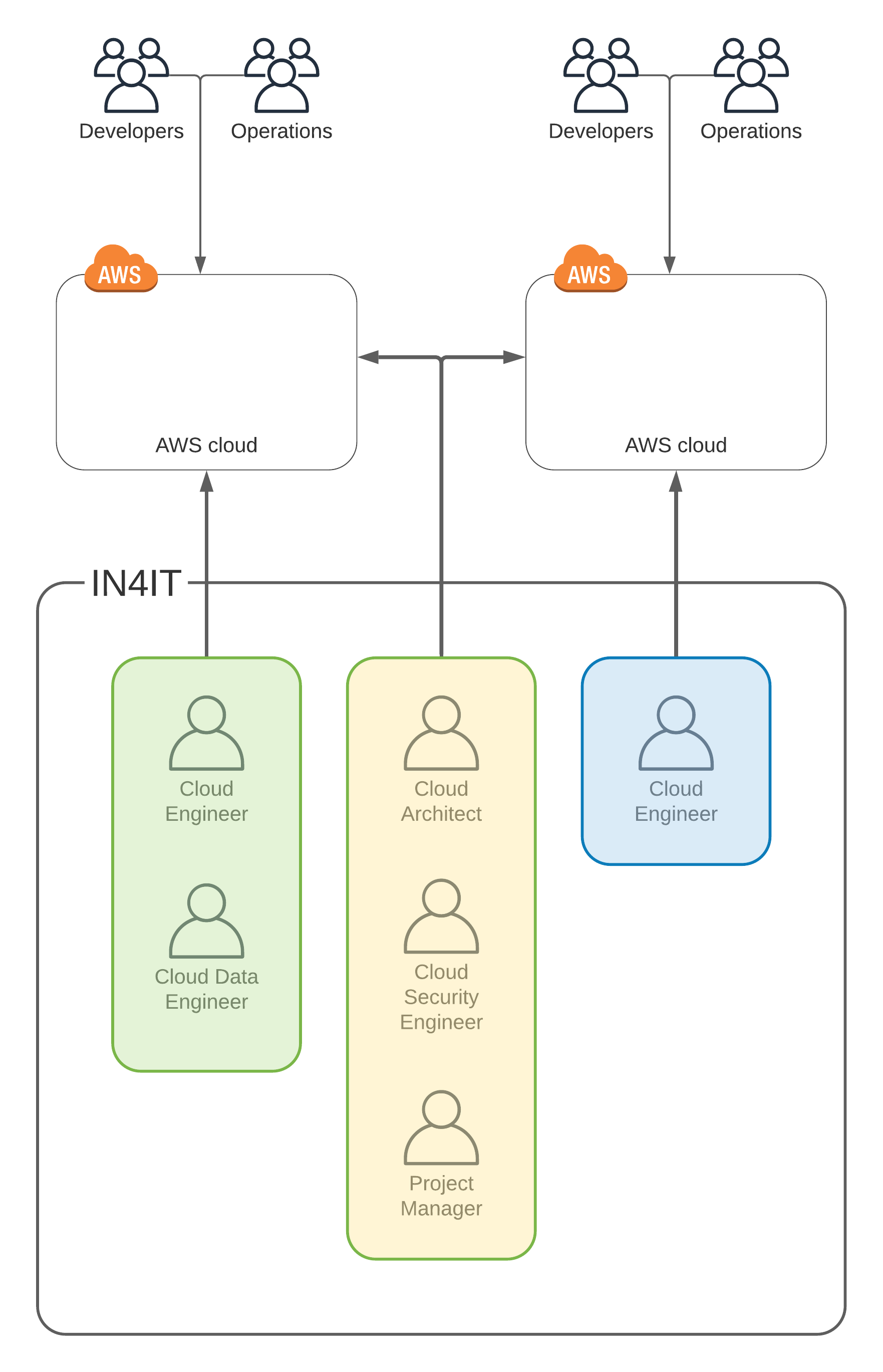Techradar reported in early 2020 that Amazon Web Services now has 175 products. Between the start of SQS (November 2004) and August 2020, there are more than 7500 announcements made on "What’s new with AWS".
You might wonder how a typical application team, building and deploying their apps on AWS, is keeping up to date on what AWS has to offer. Spoiler: it’s an impossible task.
Cloud Engineers at IN4IT all have their own specialization. We have architects that have a Big Data background, we have CI/CD and container specialists, we have Cloud Engineers setting up security and compliance systems (DevSecOps), and so on. It’s not possible anymore to be a “Cloud specialist”, you need to specialize in one of the areas that Cloud providers are offering. The Cloud space just became too big for one person to handle everything.
Considering this flood of new features from Cloud providers, keeping up with all the capabilities can be challenging. That is why we offer our Cloud Engineers a generous amount of study time to keep up with all these features and releases. Just getting certified in your specialization is not enough, you need to get out and use these new features.
At IN4IT, we don’t offer a one size fits all formula. We treat each problem as a new unique problem that needs to be solved efficiently and cost-effective. Offers are custom made on the exact requirements of our clients. We then match our Cloud Engineers with each of their specializations, to bring a valid solution to our clients.
That’s why IN4IT doesn’t offer a single full-time Cloud Engineer to manage “The AWS Account” because that person would not have all the skills to correctly solve all of the customer's challenges. Together as a group of specialists, each in our field, we can make the best decisions to successfully deliver a project. AWS makes it easy to get started but you don’t want to take shortcuts when you want to build your infrastructure to last. You want to make your end-to-end setup as erosion-proof as possible. Heroku wrote in May 2011 about software erosion, and it’s still relevant today.
In practice, we use a model as shown in the image below. The value we can bring is to ensure the correct specialist is matched with the work that is required in an area (Security, Data Engineering, Disaster Recovery, …). You will still have "Cloud Engineers" for the generalist work, but you can't get away anymore with not bringing in specialists. You need the know-how to tackle the complex cloud challenges that every company today is experiencing.
